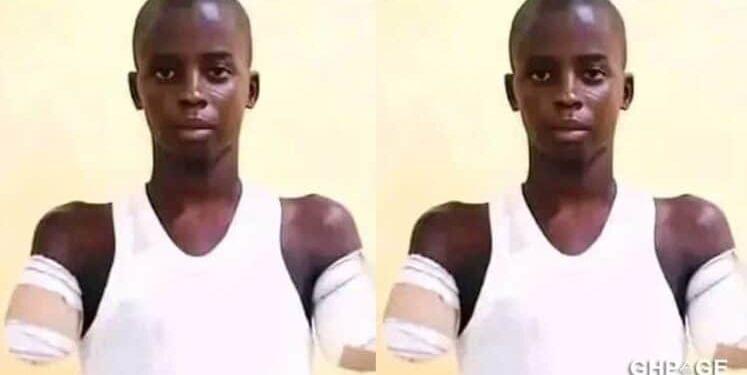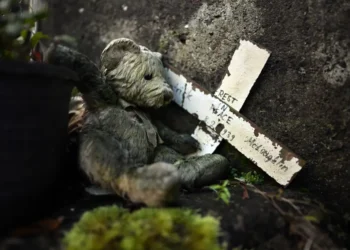The story of Adamu, a 12-year-old boy whose uncle severed his arms over phone theft accusations, has sparked widespread demands for justice and stronger child protection measures in Nigeria.
Mwalin Abdu, Vice Chairperson of the Nigerian Bar Association (NBA) Gombe Branch and Chairperson of its Human Rights Committee, strongly condemned the act.
In a press statement titled “Protecting our Future: Urgent Action Needed on Child Protection in Gombe State,” Abdu emphasized the immediate need for implementing child protection laws to stop such abuses.
The statement highlighted the troubling recurrence of child abuse in Gombe State, mentioning a similar incident in 2018 involving 13-year-old Zubair Abubakar, whose arms were also amputated by a teacher over theft allegations.
Abdu stressed that these cases are just a glimpse of a larger problem, with numerous incidents of child abuse, including sexual abuse, child labour, and trafficking, going unreported every day.
Abdu mentioned, “Even though the Attorney General’s office has taken over the prosecution of the cases, we believe that’s not enough because these two stories represent only a fraction of the daily reported and unreported cases of child abuse in the state, including sexual abuse, child labour, molestation, trafficking, and more.”
Despite the ratification of a child protection law in 2022, Abdu noted the significant gap between the law and its enforcement, leaving many children vulnerable.
She urged stakeholders to address this urgent issue and ensure the effective implementation of the law to protect Gombe’s children.
Following Adamu’s case, the Gombe State government has filed charges against his uncle. Abubakar Jungudo, Director of Public Prosecutions in the Gombe State Ministry of Justice, confirmed that the uncle would face prosecution for the severe assault on Adamu.
The community is in shock over this tragedy, calling for justice and better protection for minors, urging authorities to act decisively against such atrocities and prevent further abuse of vulnerable citizens in the state.








